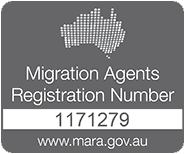We often encounter visa applicants who have children on the cusp of adulthood – 13-18 – who are in a quandary because their child doesn’t want to move to Australia. Or, your child may be on a temporary visa with you already, but choose to return home, and not be included on a permanent residency visa when the family is eligible.
It’s an all too common source of friction among families. Teenagers usually have close knit social groups, maybe girlfriends or boyfriends, and the thought of uprooting with the folks and moving halfway around the world at a time when they are just finding their feet in the adult world, is confronting.
If not played out correctly, this scenario can lead to anguish by the parents, and, years later, panicky phone calls to us at Emergico, wanting to know how their adult child can join them in Australia, now that they have visited and found out how fantastic the lifestyle is here.
Going on our experiences with this sort of situation, we find that at least 60% of children who elect not to be on mum and dad’s visa, come back within a few years imploring us to find a way to help. At that stage, if the parents visa has already been granted, it can be tricky, as most visa options available to people of that age are temporary ones.
Well – the good news is that, often, with sound planning, you can completely avoid any stress by making a strategic decision when applying for your visa.
What does “Dependent” mean?
A child under 18 is automatically deemed dependent on their parents, unless they are already in the workforce. After turning 18, the child must be in full time education after leaving school, in order to claim dependence. There must also be clear evidence that they are financially supported by mum and dad, and that any money they earn would not be enough to meet the basics of food, clothing and shelter.
Once a child turns 23, regardless of whether they are still in full time education, it is usually no longer possible to show that they are a dependent. Further, many visas require any dependents to be under 23 “at the time of decision” on the visa. Given long processing times, it can be problematic when a person is added to a visa, close to their birthday. Should their birthday arrive before a decision on the visa, they would have to be removed from the application.
Exemptions to usual definition of “Dependent”.
Many people who manage their own visas do not realise that there are some loopholes around this for people who are already in Australia on a certain visa. For example, if the family is here on a Subclass 482 (Temporary Work) Visa, and a child on the visa turns 18 and starts working while on the 482, the child can automatically be included in the later Permanent Residency Visa, just because they already hold a 482 as a member of the family unit. Even if the child marries, they can still be on the family’s visa. The same exemption applies to several visa types.
In the scenario where the child is on the Temporary Work Visa, but decides to return home; when the family applies for permanent residence, the child can still be included on the PR visa, even if they are offshore, provided the child still holds a Temporary Work Visa.
This can be an extremely useful strategic option – provided the child consents of course. The marginal cost of adding another adult dependent to a permanent residency visa is approximately half the primary applicant fee for that particular visa (for a Skilled Visa, right now it would be $1,875, for example). This would give the child the option – but not the obligation – to return to Australia within 5 years of grant, as a Permanent Resident.
We’re applying for PR – and not sure whether to add our child or not!
Let’s say you’re outside Australia and pursuing skilled migration, where you can apply for a visa in your own right without a job offer. If your child is still a “dependent”, you can add them to the Expression of Interest and visa application, even if they are uncertain about making the move. (Of course if the child is 18 or over they must consent to being added to the application. If there is a split family, the non-custodial parent must also agree if the child is under 18, unless there is a court order granting sole custody to one parent). By adding the child, assuming your visa is granted, your child will also hold the same visa. If it’s a permanent visa, there is no hurry for your child to move across to Australia. Provided an activation trip is made within the stated timeframe, they could return home and then re-enter any time up to 5 years. In the case of a temporary visa, having a child hold the temporary visa – whether in Australia or not – can sometimes open permanent residency opportunities later, which would not otherwise be there.
Even if they don’t enter again within 5 years, a Resident Return Visa could still be possible, depending on the circumstances.
Can a child be added to a visa which is already in progress or granted?
If you have applied for a visa and it has not yet been decided, a dependent applicant can be added. You’d need to pay the additional “dependent applicant charge” and prove dependence.
If you already hold a visa which is provisional or temporary – say a 489 Skilled Regional Visa, or a 482 Temporary Work Visa – it can be possible to add a child after grant. There is a higher cost involved – it’s usually the same as the cost for the main applicant on that visa – but at least it’s possible, as long as the child is still dependent.
If however you already hold a Permanent Visa – say a 189 or 190 Skilled Visa – no further applicants can be added to that visa.
What if the horse has already bolted – my adult child wasn’t included on the permanent visa, it’s been granted and now they have had a change of heart?
This is where it becomes difficult, particularly if the child is out of full time education, as the options for permanent residents or citizens of Australia to sponsor their children are limited.

- If the child is under 25 and still dependent on you, a Child Visa may be possible. Under 18, it should not pose any difficulty; but for a child 18 or over they must show that they have been in full time education since leaving school.
- Depending on the country of passport, many young adults have the option of a Working Holiday Visa, while they are between 18 and 31 (or 35 in the case of Ireland or Canada). While this can lead to a 2 or even 3 year stay in Australia (after July 2019), it’s not going to lead to permanent residency.
- Study is an option too, via a Student Visa – although bear in mind that international fees will apply – and they can get expensive! Due to the “Genuine Temporary Entrant” requirement for students, it can inexplicably work against a potential student who has all of their family living in Australia – the student visa could be refused because the Department may consider they don’t have a genuine reason to return home after the study!
- If a student visa can be granted, a Graduate Visa might be available for 18 months – 3 years, depending on the course studied. However, again it is not a pathway to permanent residency – although would provide valuable time and work experience in Australia, which might lead to an opportunity with an employer sponsor.
- If the person has a skill or trade already; and at least 2 years of work experience, definitely an employer sponsored visa might be possible. This pathway has become more difficult lately with the mandatory 2 years of work experience requirement, so it won’t be any good for new graduates.
- Skilled Migration could be considered, if the child is qualified and experienced in a certain occupation which is available for skilled migration. This is becoming increasingly competitive; and there will be changes in November 2019, which will make skilled migration closely focused on regional areas – here’s our recent blog post about this.
- If the person has an Australian partner, then a Partner or Prospective Marriage Visa could be considered.
- A final, but not very useful, option is a Remaining Relative Visa. This is a very rare visa, which allows people who have NO other family members at all who are not in Australia. It’s hard to get, and the wait time can be excessive – over 50 years at last look!
How can Emergico add value?
If you have a complex situation involving a child, at Emergico we have registered migration agents who can provide you with strategic advice in these situations. We can also prepare complex dependency submissions where required; and let you know of the best pathway to take. Sometimes there are special situations in which dependency can be argued. Contact us here.





